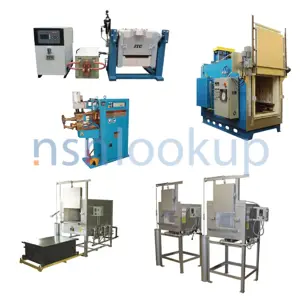Magnetic Unit Stress-Relief
Item Name Code (INC) 41891
 |
INC 41891 REINSTATED ON 110317~A unit designed to relieve stress along the sharp edges of cutting tools such as drill bits, milling heads, or any tempered cutting tool. This is a magnetic stress relief process which can extend the sharpened life of HSS, Cobalt, Carbide, coated or uncoated, new or resharened tool types.
 Additional Information for Magnetic Unit Stress-Relief
Additional Information for Magnetic Unit Stress-Relief
Magnetic Unit Stress-Relief is a method used in metal heat treating and non-thermal treating equipment in the supply class Metal Heat Treating And Non-Thermal Treating Equipment in the supply group Metalworking Machinery.
Magnetic Unit Stress-Relief is a process that involves the use of magnetic fields to relieve stress in metal components. This method is commonly used in industries such as aerospace, automotive, and manufacturing, where metal parts are subjected to high levels of stress during the manufacturing process.
The process works by applying a magnetic field to the metal component, which causes the magnetic domains within the material to align. This alignment helps to redistribute the internal stresses within the metal, resulting in a more uniform stress distribution and reduced residual stresses.
Magnetic Unit Stress-Relief offers several benefits, including improved dimensional stability, increased fatigue life, and enhanced mechanical properties of the metal components. It can also help to prevent distortion and warping of the parts, which is especially important in applications where tight tolerances are required.
In terms of equipment, Magnetic Unit Stress-Relief systems typically consist of a power supply, magnetic coils, and control units. The power supply generates the magnetic field, while the coils are used to apply the field to the metal component. The control units allow for precise control of the magnetic field strength and duration.
Overall, Magnetic Unit Stress-Relief is a valuable technique in the field of metal heat treating and non-thermal treating equipment, as it helps to improve the quality and performance of metal components.